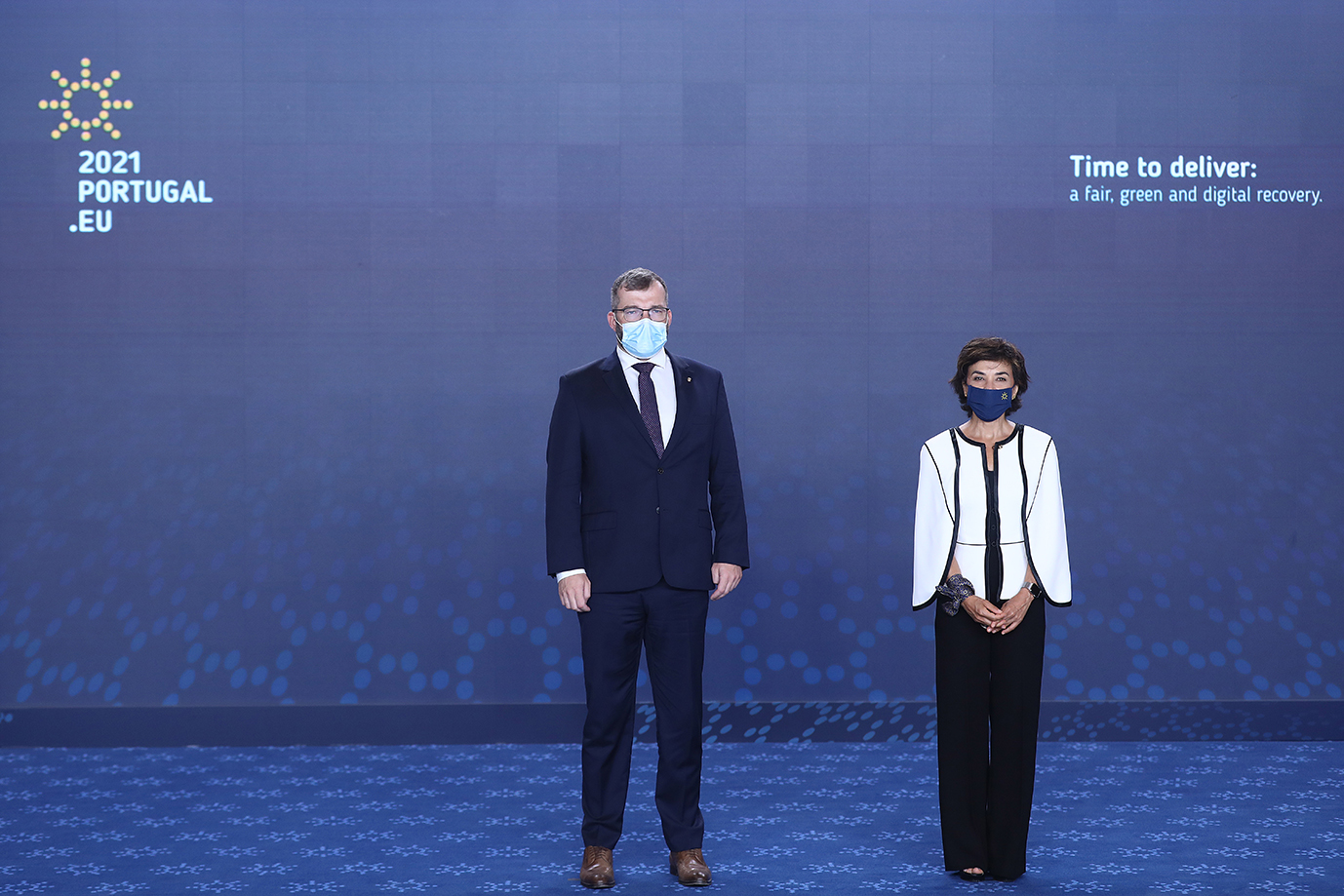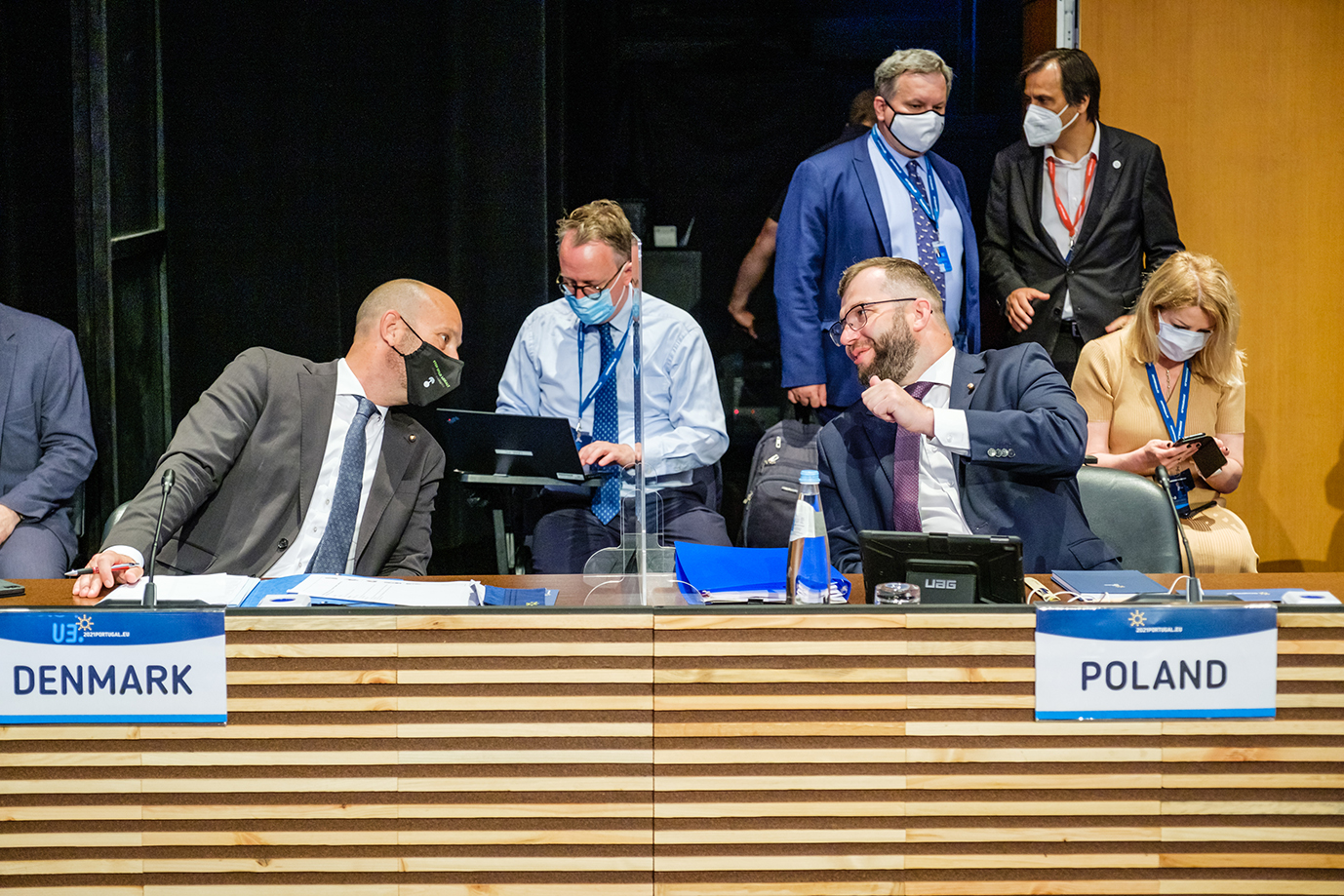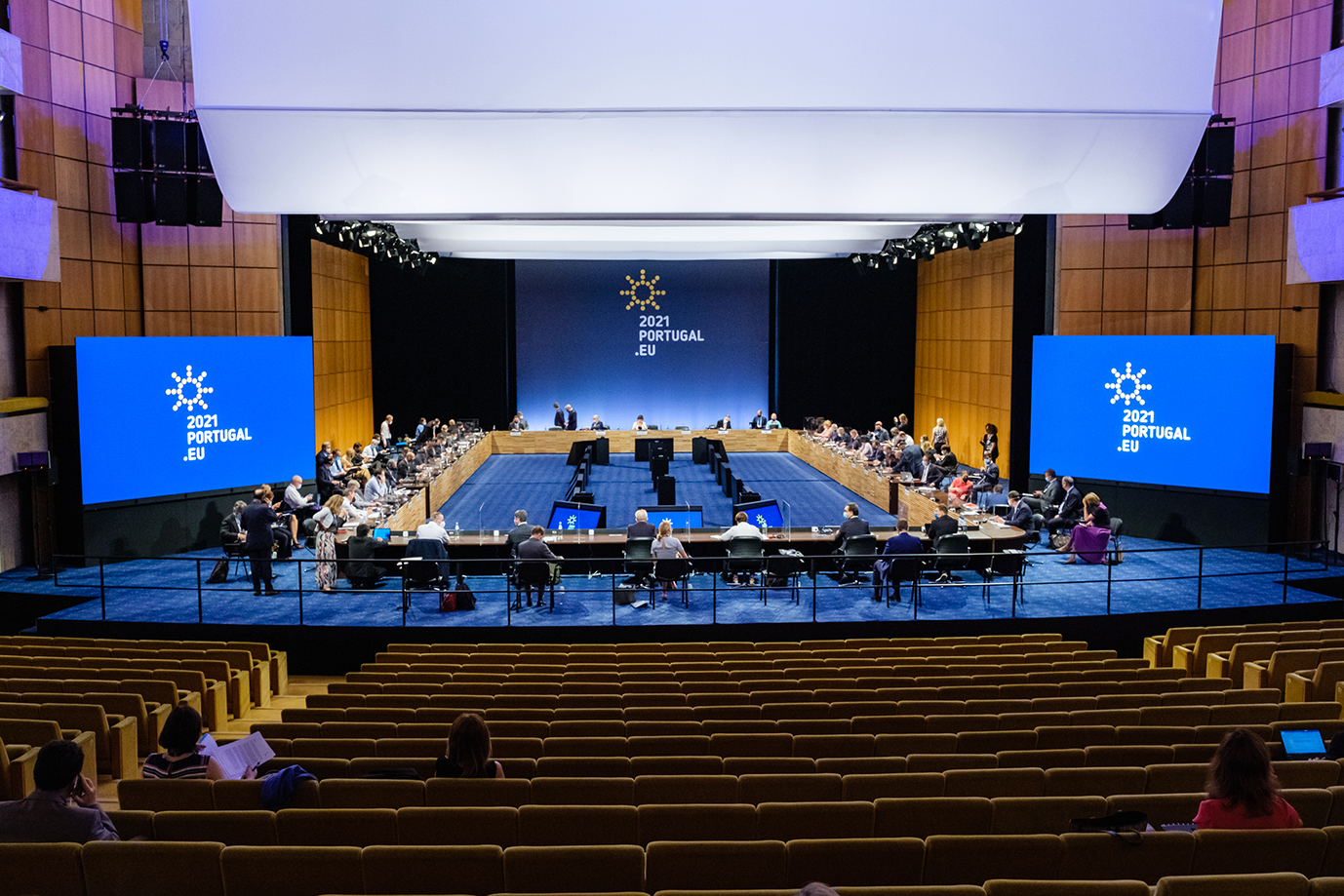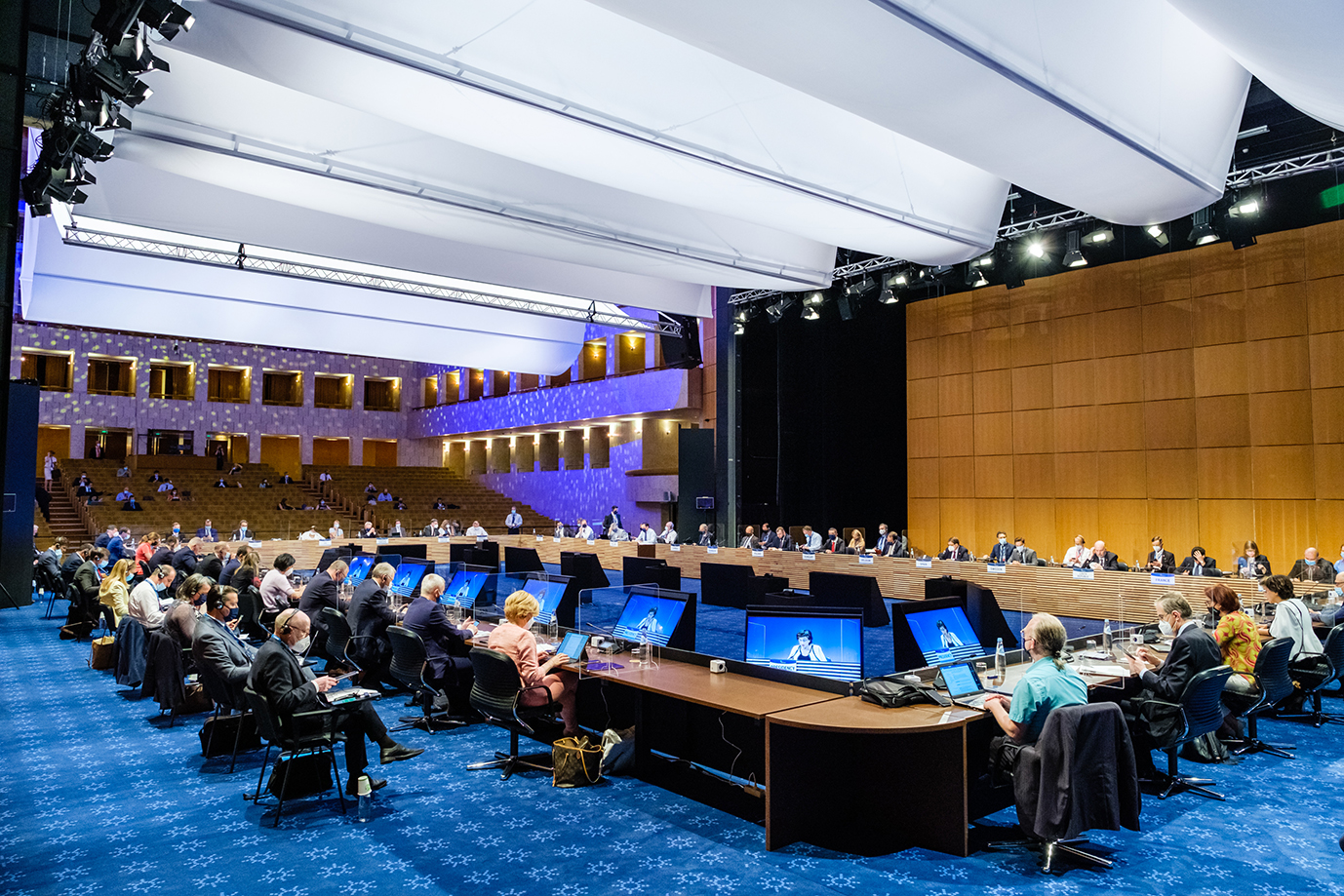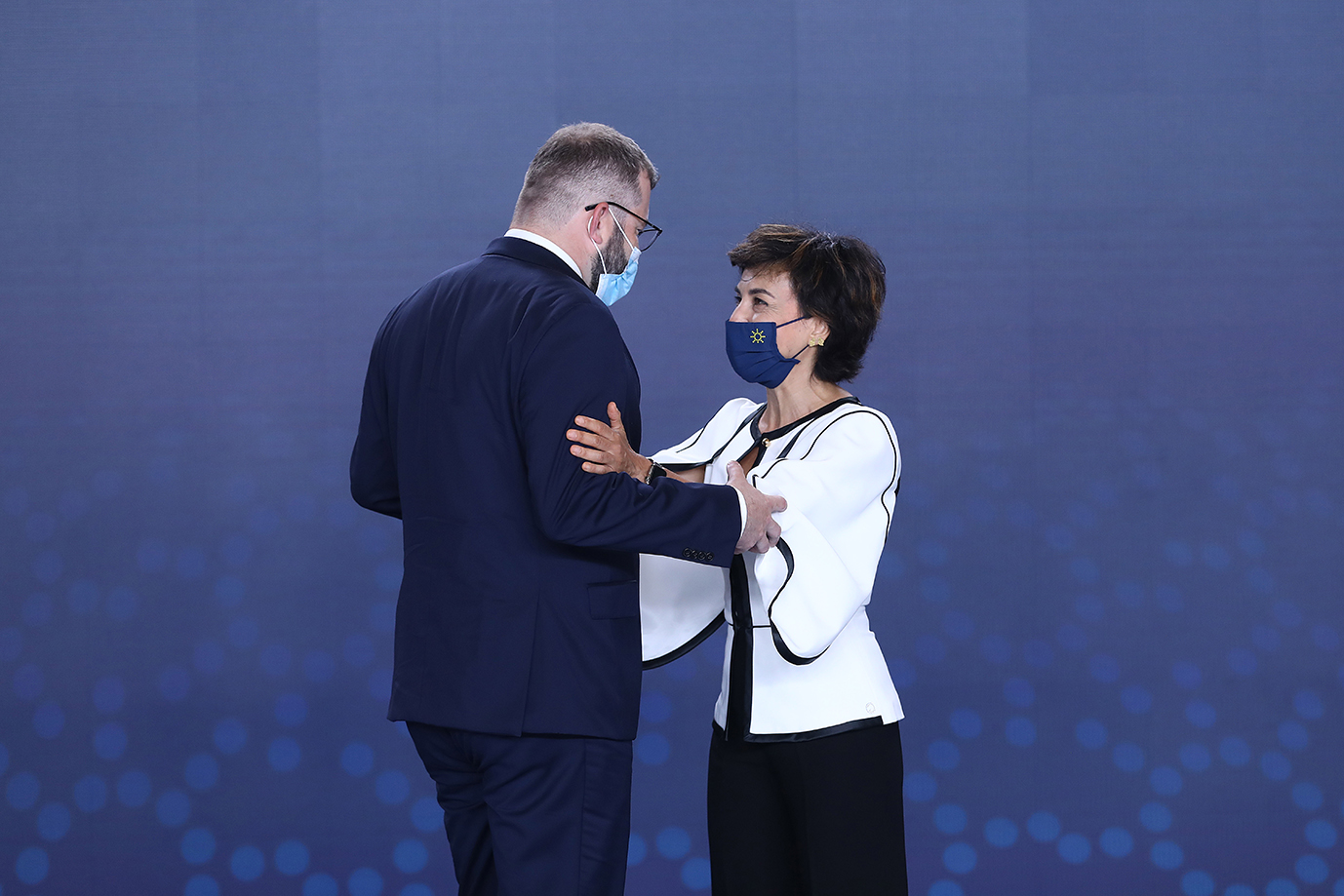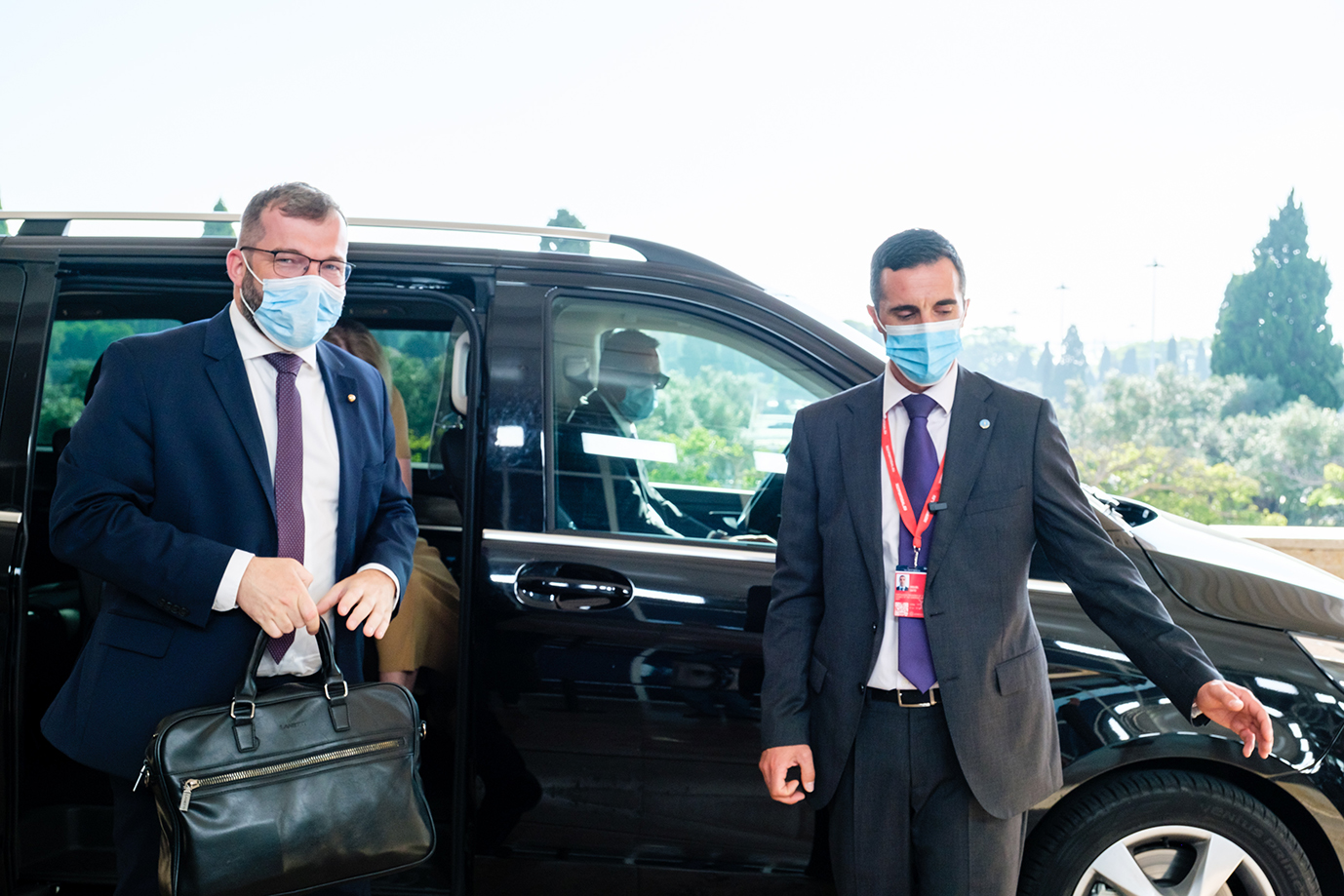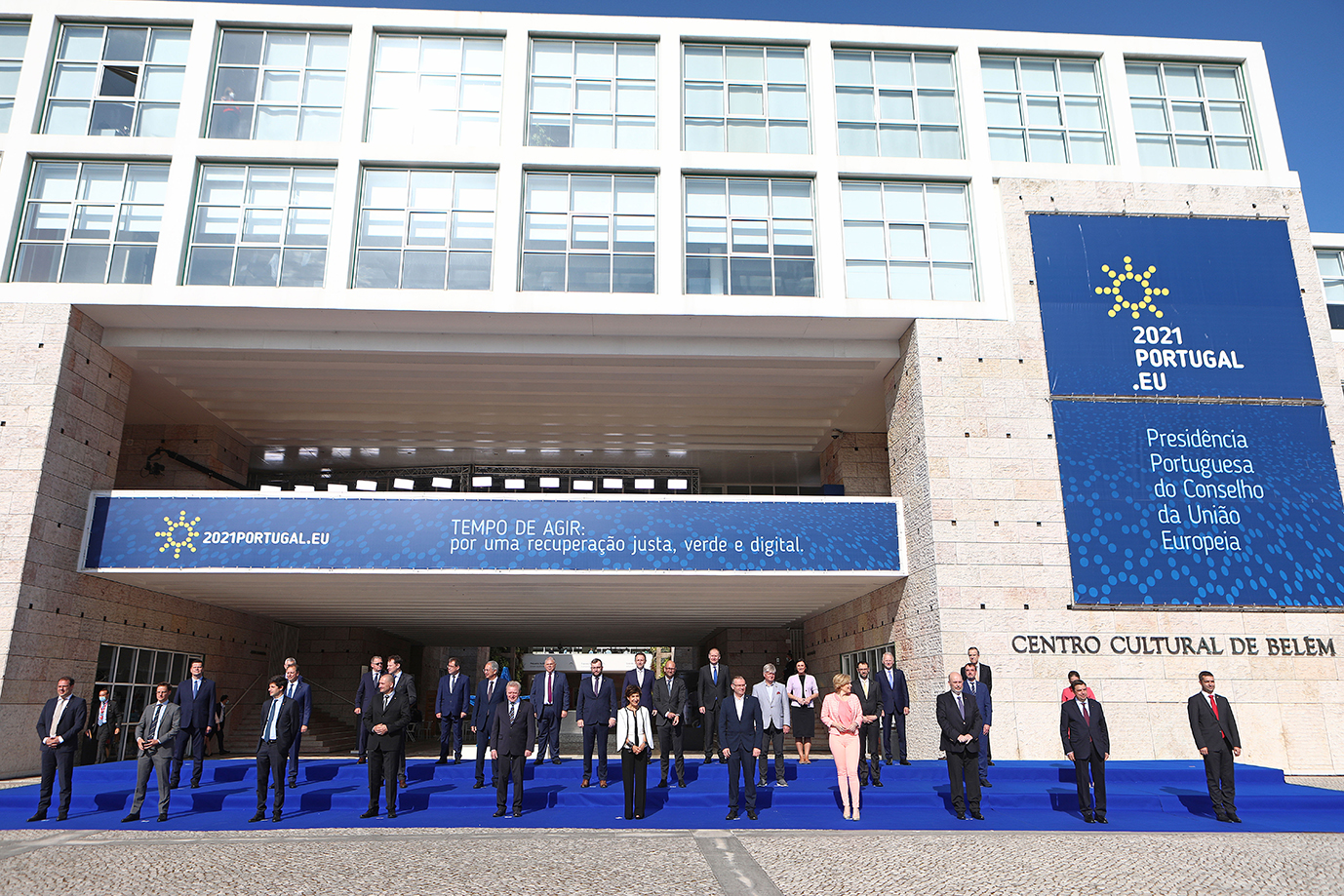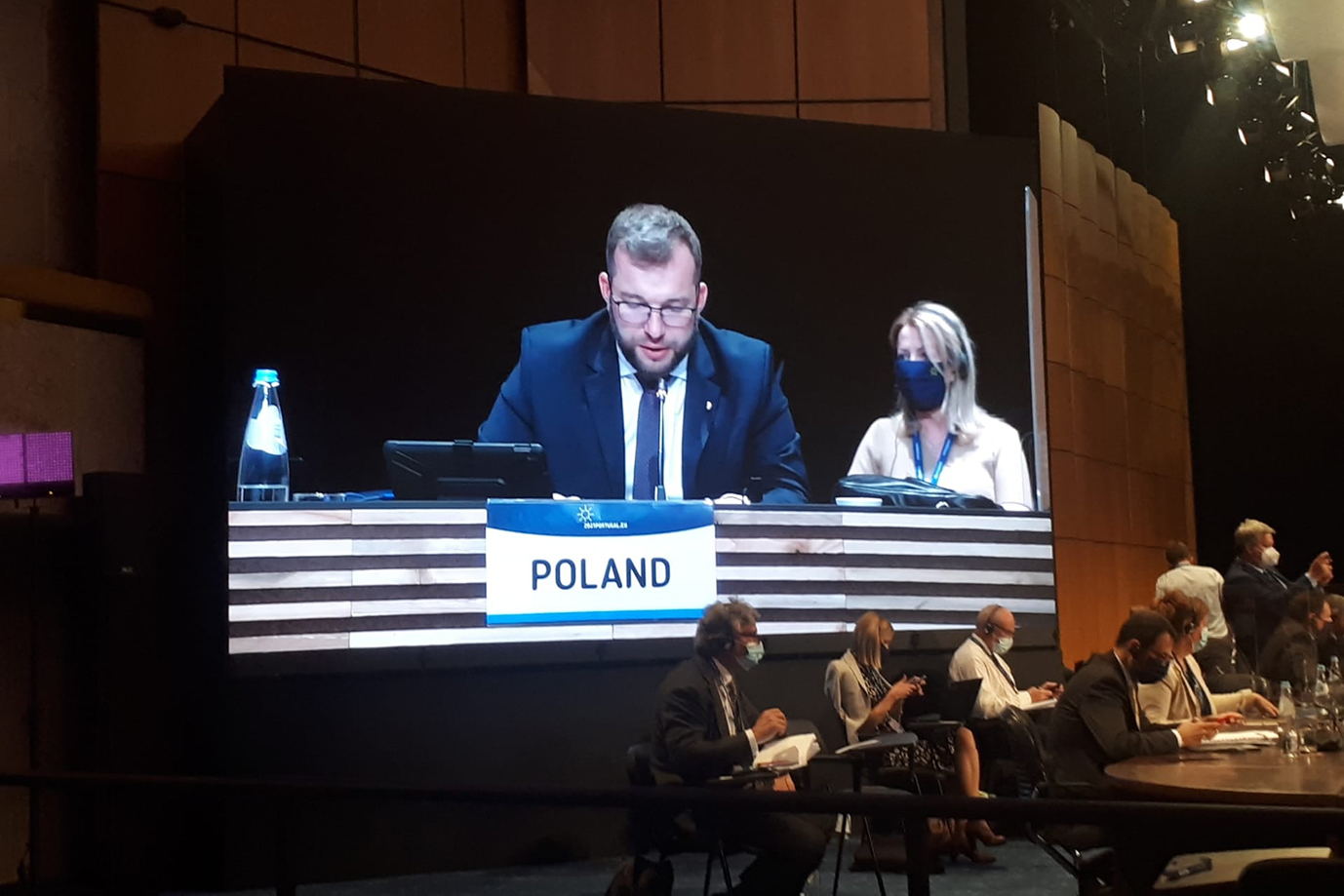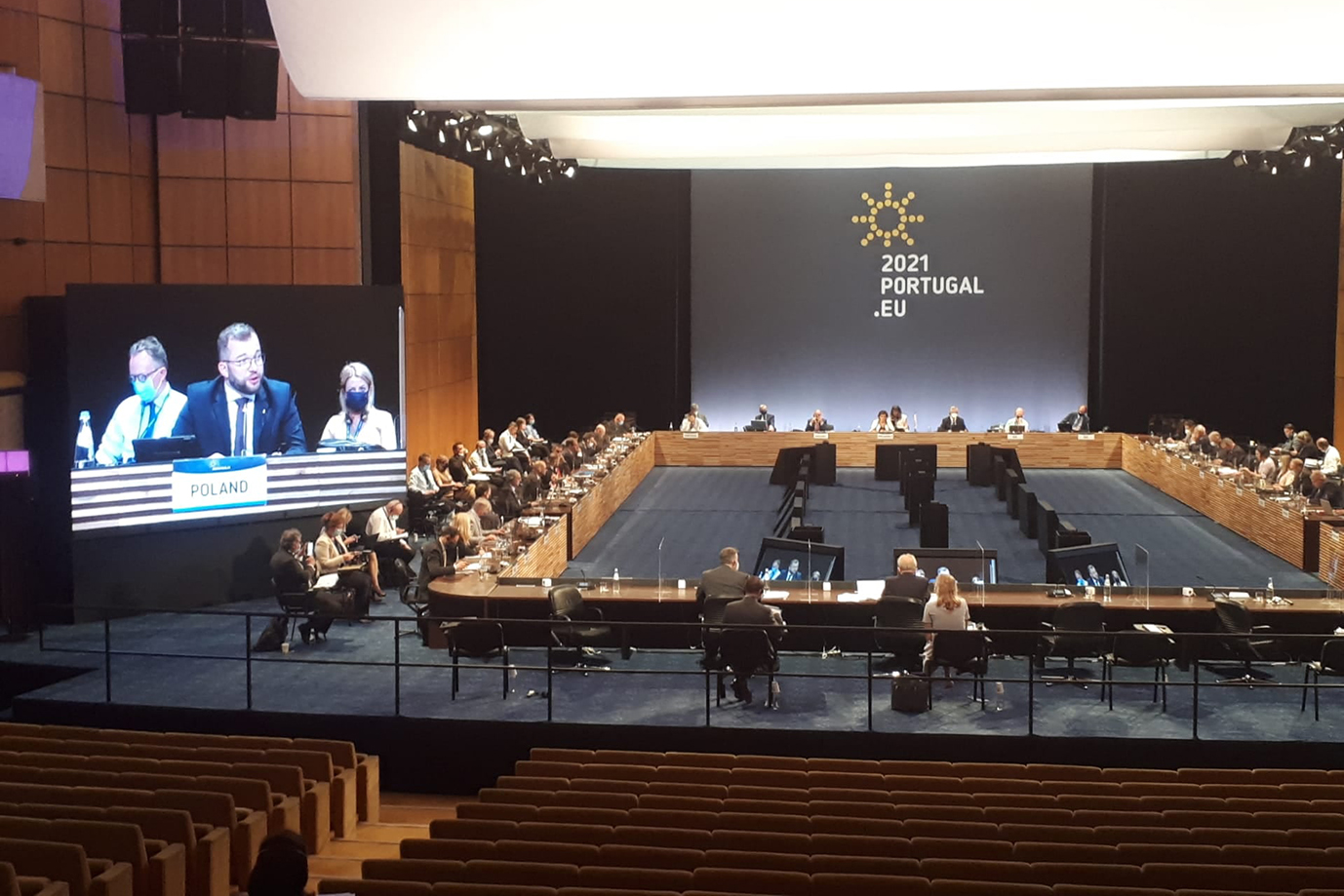Informal meeting of EU Ministers for Agriculture and Fisheries in Lisbon
18.06.2021
Minister Grzegorz Puda took part in an informal meeting of EU Ministers of Agriculture and Fisheries held in Lisbon on 13-15 June this year.

The Portuguese Presidency originally intended to hold a discussion with the ministers based on the document it had drafted, titled “Food Systems, Innovation and Management of Natural Resources.” However, with the ongoing negotiations on the legislative package that makes the post-2022 CAP reform, the Ministers devoted most of their time to that issue.
Food systems
In the opinion of Poland the document drafted by the Presidency lends a broader context to the ongoing discussions about the future of the EU Common Agricultural Policy.
“The document shows the challenges we are facing at the EU level and on the global scale, such as transforming food systems and ensuring food and nutritional security, public health, healthy nutrition, and sustainable agriculture. Agriculture in the EU should be adequately prepared for these challenges,” Minister Puda said.
Poland believes that research and innovation in the agricultural sector, as well as digitisation, will play an important role in rebuilding the potential of actors in the food chain. We share the approach that focuses on the need to use natural resources sustainably, by protecting soil and water resources and preventing climate change and biodiversity loss.
CAP
The negotiations concerning the post-2022 CAP reform still have not resolved the important and difficult issues concerning the budget allocated to climate and environmental action in both the first pillar (eco-schemes) and the second pillar of the CAP.
In presenting the current position on CAP reform, Minister Puda pointed out the issues that are important to Poland, such as environmental expenditure in the second pillar of the CAP, flexible eco-scheme implementation, redistributive payments and payments for young farmers, production-coupled payments, GAEC standards, and in particular GAEC 9 and the possibility of its implementation also through intermediate and nitrogen-fixing crops, as well as the unjustified coupling of strategic plans with the European Green Deal strategy.
Referring to the issues still left open at the last stage of CAP negotiations, many ministers emphasised that the Council had made considerable concessions to EP in many areas, such as in greening architecture and incorporating the social dimension into the CAP. The coupling of CAP with the Green Deal, as suggested by EC, raised many concerns. Several ministers made the point that the assessment of strategic plans of the respective Member States had to be based on legally binding criteria. Making references to CAP quantitative goals in the recitals in the preamble, as suggested by EC, did not meet with the approval of the majority of Member States. Another issue highlighted was the importance of reaching a good agreement on GAEC standards. In particular, concerns were raised by the Presidency’s proposals on GAEC 9. With respect to eco-schemes, Member States called for maintaining adequate levels of flexibility. Many Member States also underlined that it was necessary to ensure subsidiarity and flexibility in the targeting of payments.
The future of the Common Fisheries Policy
The latter part of the meeting concerned the future of the Common Fisheries Policy. In line with one of its objectives, the policy was supposed to contribute to a fair standard of living for those who depend on fishing activities, taking coastal fisheries as well as socioeconomic aspects into account. It seems that it is more often the case that this objective is relegated to the background.
During the discussion, ministers emphasised that one of the most significant achievements of the Common Fisheries Policy is its regionalisation. The Baltic Sea region can boast the Baltic Sea Fisheries Forum (BALTFISH) which brings together all EU Member States fishing in these waters.
Adequate solutions should be prepared by BALTFISH within the framework of regionalisation, as this would allow considering the needs of each Baltic Sea state and their fishing fleets.
The discussion on scientific advice from the International Council for the Exploration of the Sea (ICES) within a narrow circle of interested states always constitutes a starting point for determining catch quotas, being an important level in the decision-making process.
Poland agrees that a healthy and protected ecosystem will translate in the long term into the welfare of fisheries-dependent communities. However, not all regions of the EU, and not all fish species achieve the maximum sustainable yield (MSY) yet. The situation is particularly difficult with respect to eastern cod stocks in the Baltic Sea, and it poses a serious threat to the livelihoods of fishermen – especially of Polish fishermen.
In Poland’s opinion, the important element that could enhance the implementation of the Common Fisheries Policy is to engage the interested practitioners themselves, i.e. the fishermen, in the management process to a greater extent. At the same time, all solutions should be long-term in nature and based on best scientific advice.

